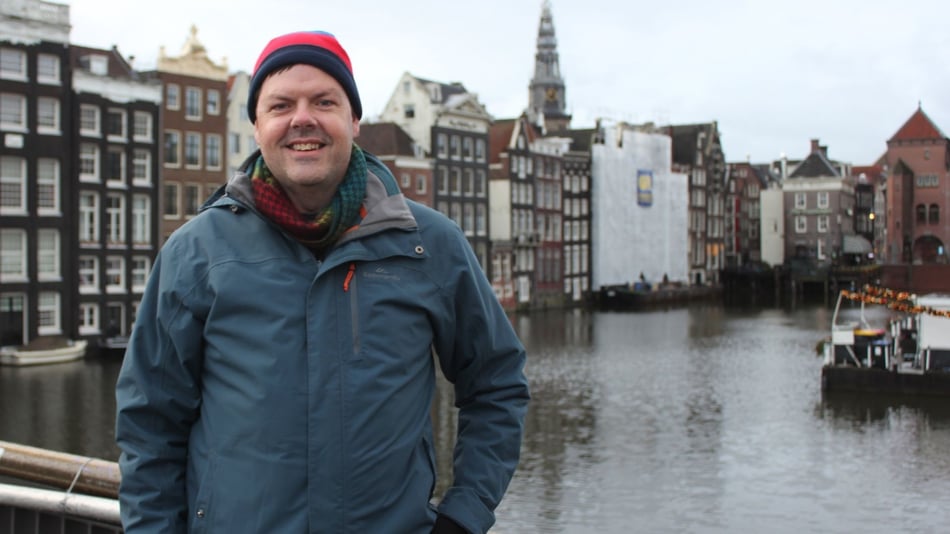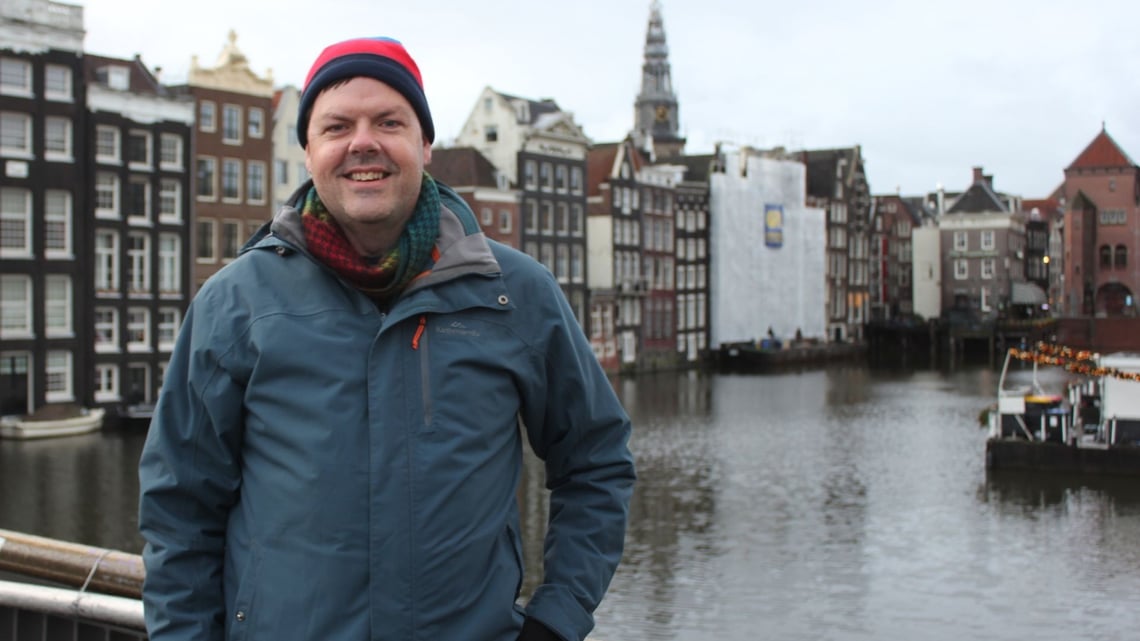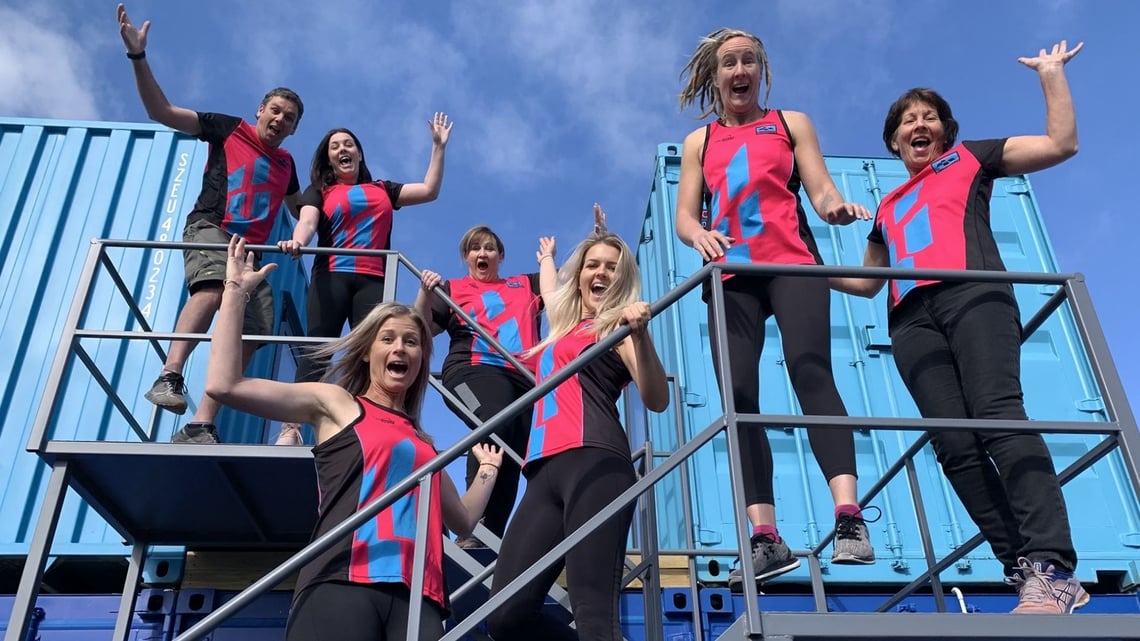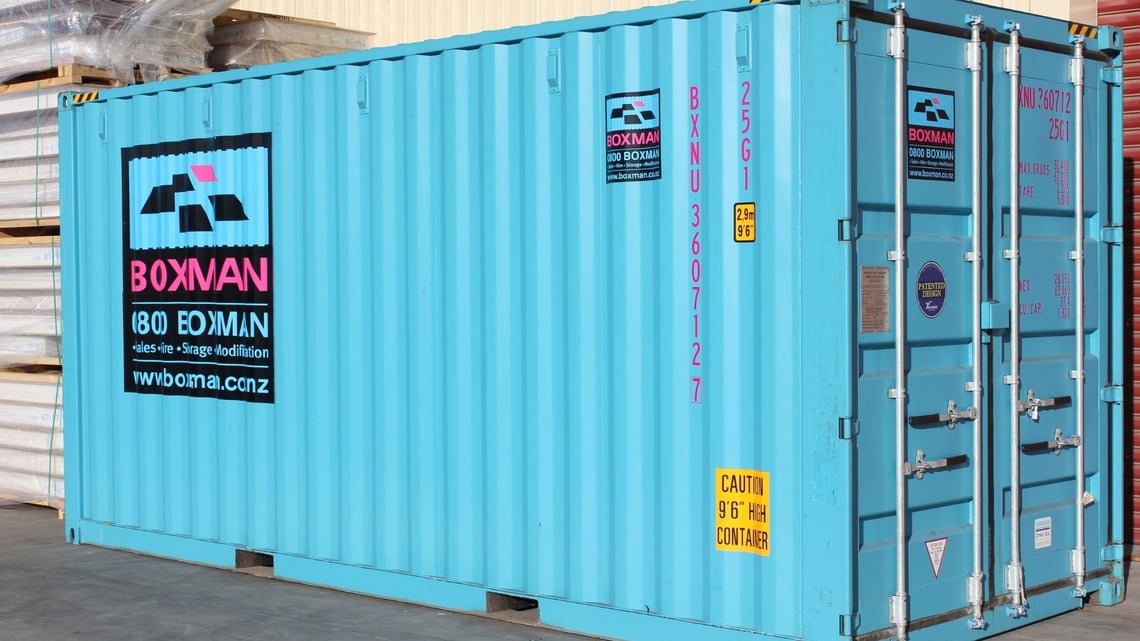Case Study: Mat Charles from Boxman Group

Mat Charles is the founder and Managing Director of Boxman Group, the shipping container sales, leasing, self-storage and modification specialists. Based in Nelson, Boxman has five branches nationwide and further stock facilities located throughout New Zealand. 
Location: Nelson
Business Type: Shipping Containers and Storage
Founded: 1990
Number of employees: 28
Current Business Situation: Steady year-on-year growth with product and locational expansion due in 2021
Relationship with The Icehouse: Owner Manager Programme and Leadership Development Programme Alumni
‘Boxman has an awesome work environment where collaboration, innovation and fun are encouraged. Mat has created an environment and culture in which people can thrive. Our employees' passion, energy and smiles are contagious, and these can be seen, heard and felt when dealing with any of the staff.’ Jacques Havenga, General Manager, Boxman Group
Tell us about yourself and why you decided to become an entrepreneur?
I grew up in Papua New Guinea in the 1970s where my parents ran three pharmacy/general stores. They were quite trailblazing in what they were doing and the way they approached life, and that left a big impression on me. I share their pioneering spirit and energy.
I’m a naturally inquisitive person, and if something interests me then it doesn’t take long for that interest to morph into ideas that may or may not translate into business concepts – that seems to be a common trait among entrepreneurs!
Boxman isn’t my only business, I have a software development company and a commercial recording studio, both of which came about after experiencing something and deciding I could do that a bit differently, and hopefully better.
Why did you choose your type of business?
I got a job at a shipping company in Nelson in 1989. Six months into that job, a customer came into the office looking to buy a container. Container trading wasn’t really ‘a thing’ back then and wasn’t part of the company’s interest. I investigated the options and gave all the necessary information to the customer to make that transaction possible, and a little light bulb went off in my head. So, in reality, my business chose me.
I started the business on the side while holding down my day-job at the shipping company. The business grew quite steadily and, in 2002, I joined the business full-time.
How have you and your business been impacted by COVID-19?
We were just finalising our financial budget for the year when COVID hit and we decided to revise some of the numbers downwards – particularly our trading sales sector as that had been struggling anyway. We were hopeful the other sectors of the business would hold up ok – the doom and gloom merchants certainly gave us pause for thought.
However, what has happened post lockdown is that we have had our best eight months for the past three years! We’ve talked about it a lot internally, and we can’t really put our finger on why this has occurred. The aspect of the business that we were most worried about is performing well. We survived the 2008-2009 Global Economic Crisis (GFC), so COVID is just another challenge to overcome.
Tourism and hospitality have obviously struggled enormously, but because we’re not particularly exposed to those sectors, we haven’t been impacted too greatly. People are still spending and have money to spend, just in different areas. With overseas travel restricted, they’re perhaps looking inwards, and that seems to have benefitted us.
What are currently your biggest challenges?
In the 2000s, Boxman was the innovator in the industry. However, in the last ten years, the rest of the industry has caught up to us in terms of quality of product. The market has become much more competitive thanks to the onslaught of the online trader and a lot of the big international traders entering the New Zealand market. 
Containers have become commoditised and while this affected our container trading business, all other areas of the business were growing. For various reasons, we’ve been treading water over the past couple of years.
Despite the lockdown, COVID hasn’t posed any real negative challenges, if anything it has helped us home in on the things we need to do better a bit quicker than we might have. We don't spend a lot of money on advertising, although this will increase as we roll out some new initiatives in 2021. We get a lot of repeat business – up to 15% of our turnover – and a lot of business through word of mouth.
As always, our biggest two challenges are finding enough capital in NZ to achieve our growth plans and finding talented staff who will fit in with Boxman’s unique culture.
What kind of support have you received from The Icehouse and are you looking to keep working with them?
I’d gone from being the third full-time person in the company in 2002 to having a team of 15 by 2006. All of my experience has been learned on the job, but the business was on a trajectory where I needed to expand my own knowledge base and also bring that back to assist and expand the knowledge base of the team.
I heard about The Icehouse from BNZ and I jumped on Owner Manager Programme (OMP) 15 in 2007. I’ve always had an open and liberal mindset; I just wanted to go to learn and had no preconceived ideas around what to expect. The OMP was surprisingly varied in terms of the subjects covered and the way I could address such things in my business.
A big takeaway was about learning to give up control in the right areas – working on the business rather than in it, and what I heard also echoed my own thinking at the time. It was a real affirmation that I was on the right path around growth and strategy, but also it gave me the tools to turn those thoughts into positive actions.
I thoroughly enjoyed the experience, and all these years down the road still actively talk to people about it. I would recommend the OMP to any business owner. I attend Icehouse alumni events when I can, and often chat about resilience and perseverance as being a key attribute towards long-term success.
My OMP experience helped me shape the business I wanted to have and want it to be. My OMP folders sit on my shelf and I often pull them out to remind myself.
Honestly, there is some doubt we would have survived the tribulations of 2009 had it not been for the skills I learned on OMP 15 in 2007. Funnily enough, my major OMP project is what Boxman is rolling out in 2021.
So, what I discovered then is still relevant and critical to what I’m doing now. We are looking to send a couple of the team onto The Icehouse sales workshops in the near future.
How have things changed since working with The Icehouse?
Current turnover is $9 million and year-on-year organic growth between 2012-2018 has been healthy, between 5%-8%. I’m not into growth at all costs, revenue is well down the priority list and profit and cash-flow are our main drivers.
We are rolling out some large projects in 2021-2022 and rapid growth can actually get in the way of long-term profits if you let it get away on you. Our container leasing fleet (onsite and self-storage) has risen from 1,600 post-GFC to 2,100 units and utilisation sits at between 93%-95%. We currently have approximately 2,500 containers in our fleet in total. In two years’ time we expect that to double.
Over the years, we’ve really focused on the brand and customer service deliverables, and these things have helped make 2020 surprisingly healthy. We encourage an environment of self-responsibility and ownership of positions, with a flat hierarchy and an approach of collaborative learning in a positive environment, which is why The Icehouse fits in so nicely with our way of doing things.
2021 will see the completion of the first Boxman Automated Super Stacker (BASS) facility in Christchurch – a ‘one-shop’ multi-end-user facility available to both corporate and individual clients linked into a web-based customer interface. It’s a world-first which will transform the storage industry in New Zealand, so we’re incredibly excited about the future.
A key component of that implementation involved sending two of the Boxman team on the Leadership Development Programme (LDP) in 2019. I’m a real advocate of The Icehouse, I knew that the skills learned on the LDP would give them a head-start in the project management side of what we’re planning to do in 2021.
My goal is for Boxman to be the best little container company in the world, and innovation providing differentiation remains the key to Boxman’s future success. Continuing to find higher-margin B2B customers on the fringes of what is considered traditional container trading activity will bring long-term growth and profitability. I have this driver that I haven’t completed my journey yet, and that’s my goal. And there’s no particular timeframe around that!
What advice would you give to other entrepreneurs who are struggling/looking for help?
Although my business is a thirty-year success story, I have made plenty of mistakes along the way, so I do not claim to have anything near a perfect record! I don’t dwell on what went wrong, regrets are a waste of time and energy.
What I learned going through the circumstances we found ourselves in during and after the 2009 GFC, is that mistakes happen. Analyse the logic and decision-making that led to the mistakes, and the consequences, but don’t sweat on it. Take the lessons and move on quickly. It’s an approach we take at Boxman from the top to the bottom.
Most importantly, keep learning, keep finding out as much as you can about the game you are in, and keep seeking help from others in areas where your knowledge is lacking.
We do a lot of short-term planning, the outcomes of which are measurable, but long-term goals are approached more holistically. There is always an element of the unknown in everything we do, COVID-19, for instance.
In Boxman some of my team have given me the nickname ‘Rogue One’ because they never know what I’ll bring to the table next. I like to think it is one of my positive attributes!
One simply cannot plan and predict for every possible outcome, no matter how good you are at what you do. And you can’t control everything, so you must allow for a certain sense of freedom for what life may bring. Call it fate, karma, whatever, so long as your decisions are as informed as possible, sometimes you just have to have faith, but I have a saying I often quote, ‘The better you are, the luckier you get.’
Finally, treat your staff as if you were in their shoes and therefore, how you would hope to be treated yourself if that were the case. Occasionally I have some good ideas, but my business wouldn’t be what it is without the team who have chosen to come on the journey with me, because when the hard times come, if there is mutual respect, that team will carry you through.

Follow the link for more information about the Boxman Group and its extensive range of products and services.


.jpg?height=500&name=Regional%20Programme%20Special%20%20(1).jpg)